Advocacy. Accompaniment. Training
Iraqi Kurdistan
Partnering with farming and pastoralist communities that peacefully resist displacement and destruction caused by cross-border military operations. Accompanying human rights defenders and civil initiatives standing against oppression. Documenting impacts of violence on civilians and advocating locally and internationally for change.
Iraqi Kurdistan (IK) is located in northern Iraq with a population of over six million and nearly one million internally displaced persons and refugees. It is the only autonomous region in Iraq and is officially governed by the Kurdistan Regional Government (KRG), with its capital in Erbil. The Kurdistan region of Iraq has its own government, parliament, judiciary system, flag and separate regulations from the central government of Iraq. The region’s establishment dates back to a March 1970 autonomy agreement between the Kurdish opposition movement and the Iraqi government following years of heavy fighting. When the agreement was not implemented in the following years, another lengthy civil war occurred between Saddam Hussein and the Kurds. The Iran/Iraq War and the Anfal Campaign against Kurds led by Saddam’s Iraqi Army devastated the population and environment of Iraqi Kurdistan. During the Kurdish people’s uprising in March 1991, the Kurds and Peshmerga (the Kurdish Army) pushed out the Iraqi Army from most of the areas of Iraqi Kurdistan. After the United States-led invasion of Iraq in 2003, a new constitution was drafted in 2005 defining the Kurdistan Region as a federal entity of Iraq. Iraqi Kurdistan is comprised of four main governorates: Sulaimani, Erbil, Duhok and Halabja.
Besides the Kurds, who form the majority of the population of Iraqi Kurdistan, diverse ethnic groups with distinct identities and cultures constitute the region’s social fabric, such as the Yezidis, Assyrian Christians, Sunni and Shi’a Arabs, Turkomans, among others.
Since 2006, Community Peacemaker Teams has been based in the city of Silêmanî (also known as Sulaimani or Sulaymaniyah), located in south-east Iraqi Kurdistan. With an estimated population of nearly one million, Silêmanî is the region’s second-largest city after its capital Erbil.
We Cannot Stand Aside
A cold peace: a ceasefire without demobilization
Release Sherwan Sherwani and end judicial harassment
Journalists must be protected during political conflicts
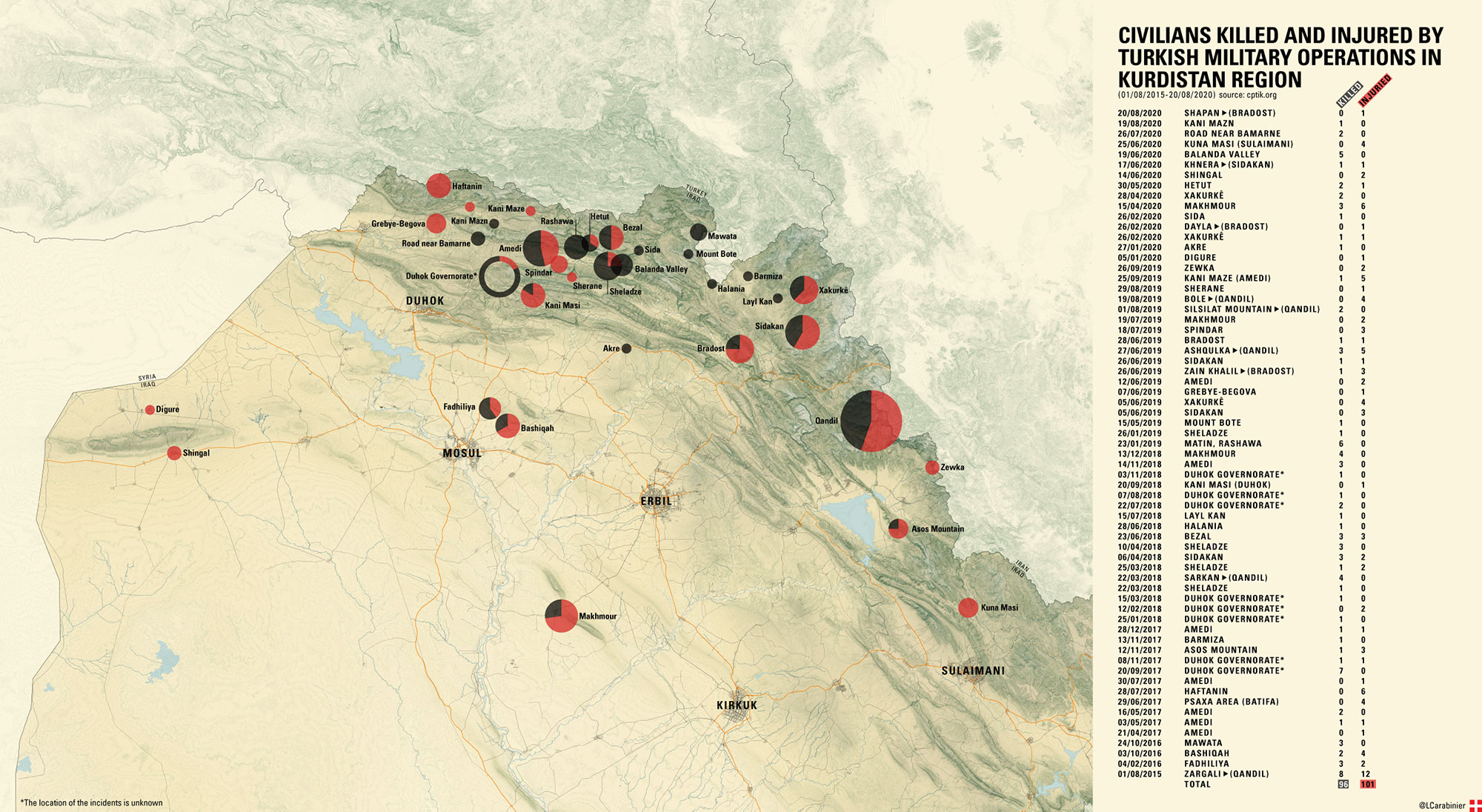
Our Work

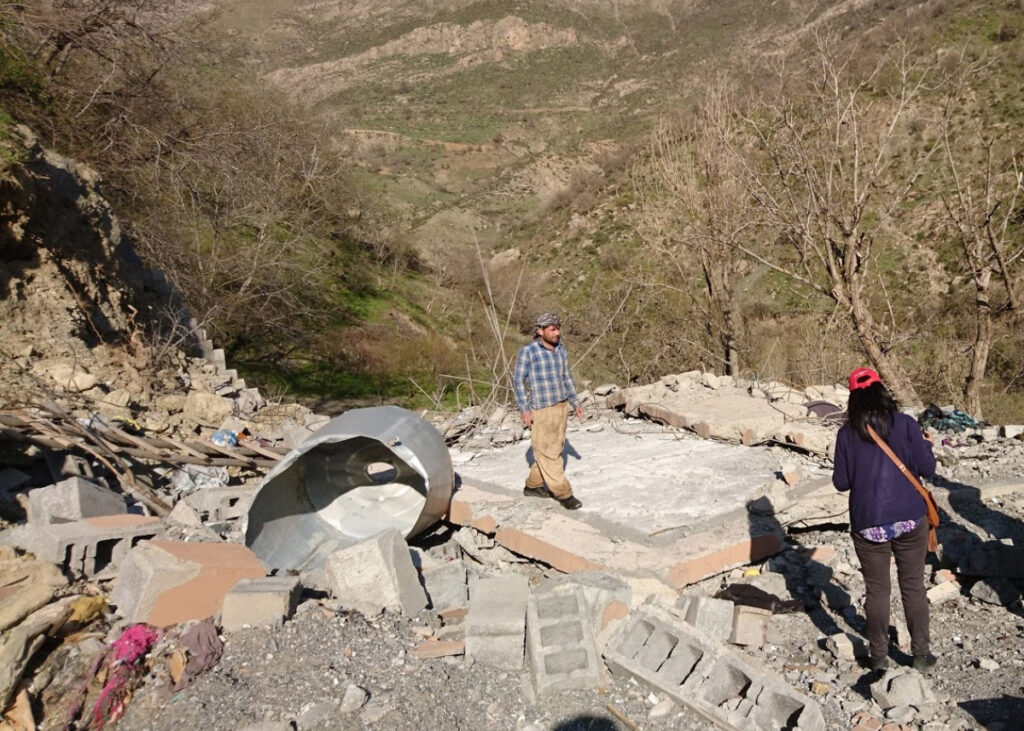
Advocacy for civilian protection in Turkish and Iranian cross-border military operations.
Hundreds of villages and small towns dot the rugged Zagros and Taurus mountains and fertile valleys along the Iraqi Kurdistan borders with Turkey and Iran. For millennia, Kurdish and Assyrian peoples have inhabited these regions sustaining their livelihoods by farming, grazing animals, local trade and crafts. In addition, thousands of migrant shepherds and farmer families use the region between March and October to farm, raise flocks and sell produce. Due to their historically strategic importance, many armies and armed resistance groups have used these mountains for battle operations and protection as well as fought for control over this region.
Turkish forces frequently use drones, fighter jets, helicopters and artillery to bombard hideouts of the Kurdistan Workers’ Party (PKK), a guerrilla group that is waging a violent campaign for the rights of Kurdish people in Turkey with bases in the mountains of Iraqi Kurdistan. Since December 2017, Turkish forces have built over 40 bases anywhere from 9-25 km into Iraqi Kurdistan’s territory south of its border. Sporadically, Iranian forces have also shelled the border regions because of the presence of Kurdish guerrilla groups fighting for the political rights of Kurds in Iran.
The constant aerial bombardments and shelling, and attacks from military bases have created a human rights and humanitarian crisis for the civilian population. Villagers, and nomadic communities, for whom this region has been a lifeline of their livelihood and culture for centuries, have suffered for over three decades. The cross-border military operations kill and wound civilians, destroy villages, burn farms and crops, and displace communities.
Community Peacemaker Teams partners with the Kurdish and Assyrian families and communities that have been targeted by Turkish and Iranian military operations. CPT plays a unique role in amplifying the voices of the survivors and accompanying those who have lost family members, their livelihoods, or are at risk of displacement. CPT documents the extent and the details of the civilian impacts of the cross-border operations through visits to the targeted areas, interviews with survivors and witnesses, and a network of contacts with local authorities and media.
CPT accompanies the affected families as they negotiate with the Kurdistan Regional and Iraqi Central Government representatives for protection and compensation. CPT shares its reports with the international community, media, consulates and foreign governments that maintain close ties and weapons businesses with Turkey. Together with local and international organizations, CPT advocates for the end of the cross-border operations, which keep on causing civilian casualty, displacement and suffering.
Accompaniment of civil rights activists threatened by violence
The people in Iraqi Kurdistan long suffered from the previous Iraqi regimes. Many people protested, fought, and struggled for freedom and respect throughout history. Since its formation in 1992, the Kurdistan Regional Government (KRG) has worked to establish an environment in which all journalists, human rights, civil society, and political activists can function freely and without fear. Despite the government’s commitment to civil rights and freedoms, some journalists and members of civil society have stated that Iraqi Kurdistan has not been safe for them. Many were killed, severely beaten, imprisoned, threatened, had their movement within Iraqi Kurdistan limited, or were displaced outside of the country.
CPT partners with civil society activists and initiatives that ask for change through nonviolent means. CPT observes and reports on court trials against journalists and civil rights activists. Alongside its partners, CPT advocates with the KRG, security forces and diplomatic missions to strengthen their support for civil rights and freedoms and nonviolent civil initiatives. As the only organization of such kind in Silêmanî, CPT provides unarmed protective accompaniment to civil rights activists threatened by violence. CPT’s presence at protests and public events help lessen the threat of violence. CPT is a part of the Federation of Civil Society Organizations in Silêmanî and the Iraqi Civil Society Solidarity Initiative, an international platform of peace and human rights organizations.
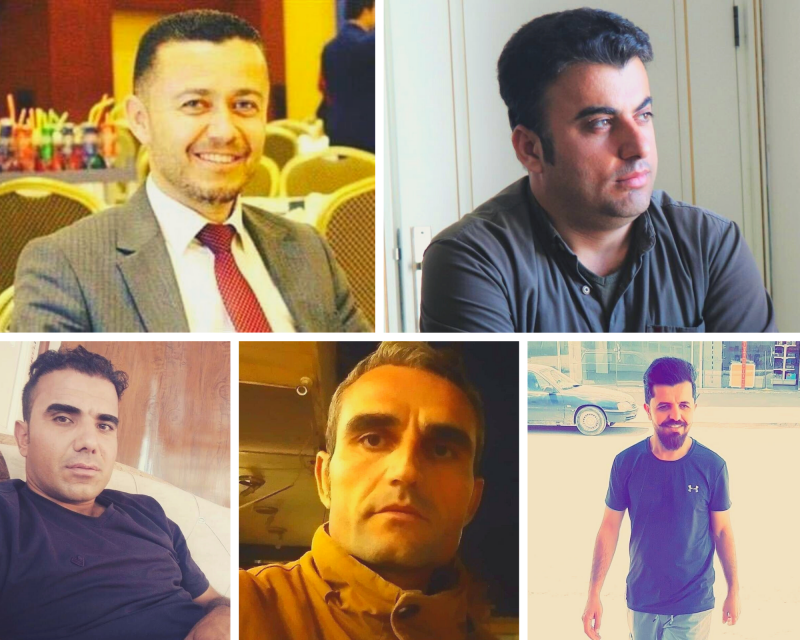
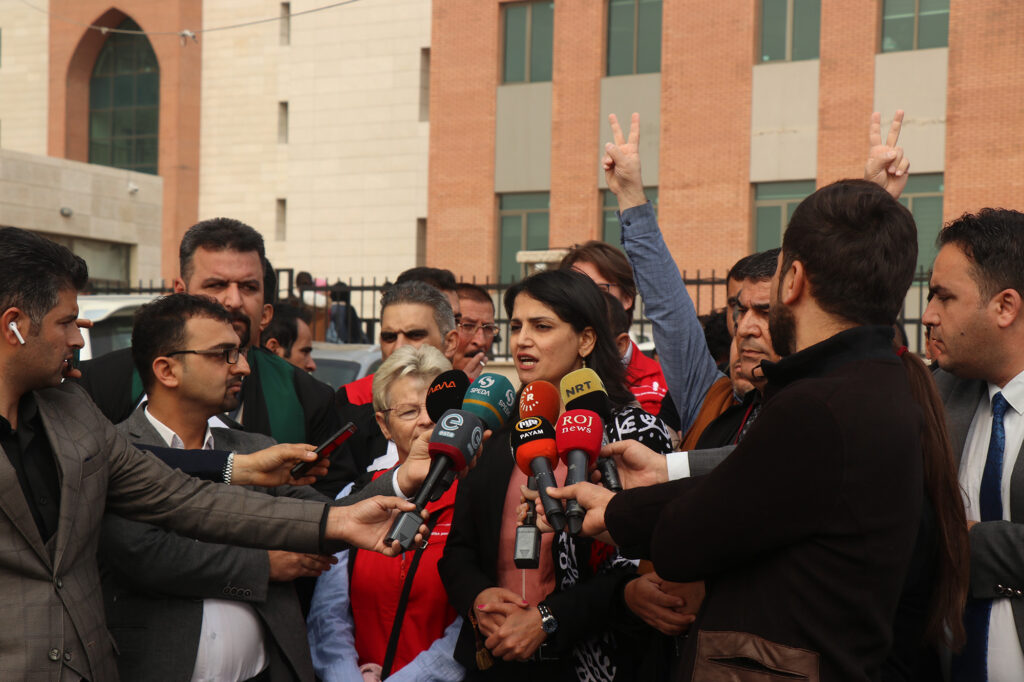
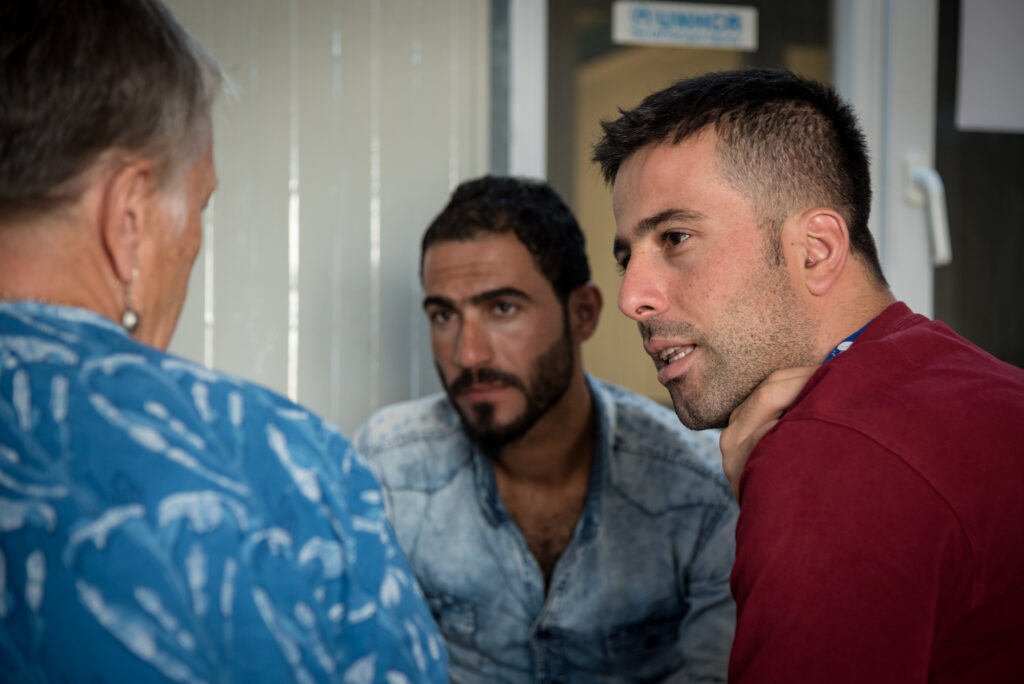
Training nonviolence and undoing oppressions
Based on invitations from academic and community circles, CPT organizes interactive workshops and participatory training on nonviolent response to conflict and on undoing oppressions. Teams made up of local or mixed (local and foreign) CPT facilitators have conducted dozens of workshops for secondary school and university students, organizations, community groups, as well as co-led many multi-day trainings of the Alternatives to Violence Project (AVP) for hundreds of youth, adult, members of minorities and NGO staff participants coming from both host and displaced communities.
Prayers from Iraqi Kurdistan
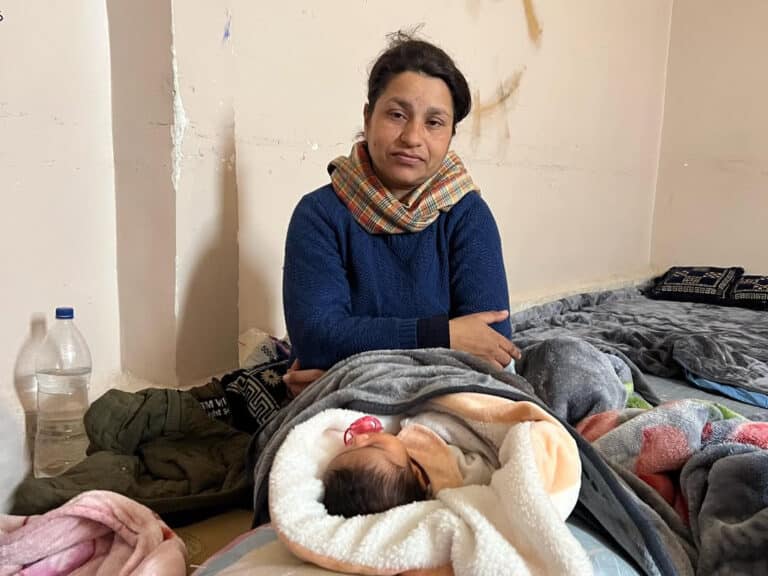
The birth of another “Deniz”
Rangin Muhammad gave birth while displaced, far from her home, after fleeing attacks that made even reaching a hospital impossible. Her daughter was born only
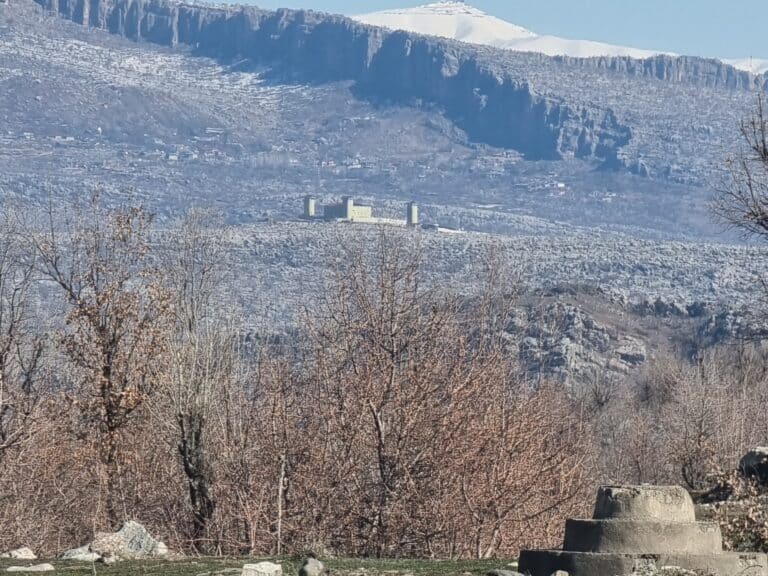
A daughter’s return
The story the villagers tell each other is that CPT has brought her daughter back, Harya* shares with us. She is a mother who had
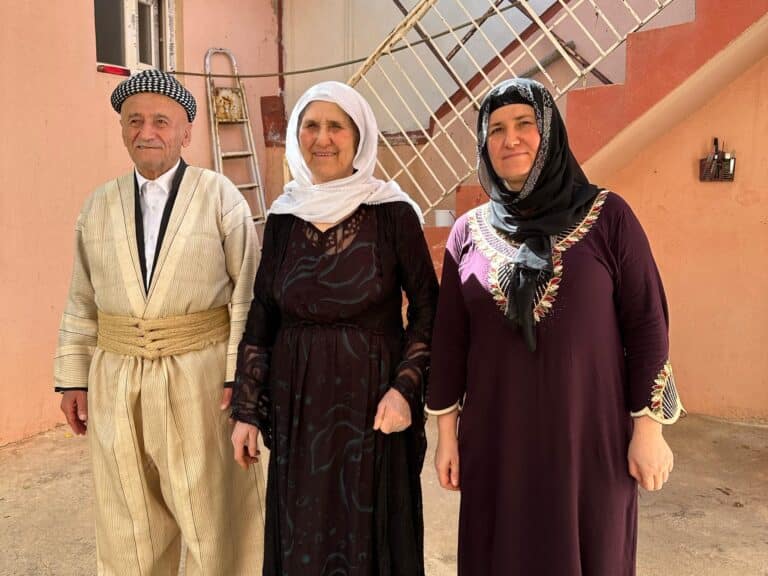
Lamenting the loss of village life and land to war
“I would not a little bit but a lot rather live in our village home in the mountains than here in the city,” insisted Haji

